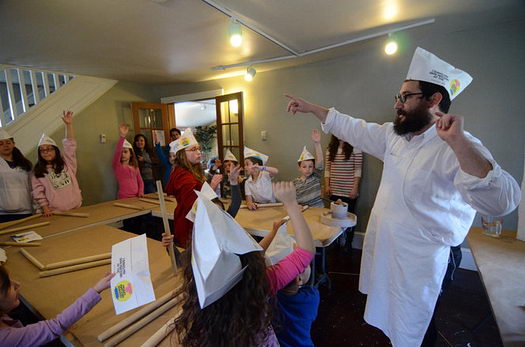
Passover Celebrates Freedom, Remembrance
Everyone knows the story, or at least has heard of it. The plagues, the Pharaoh, the escape from Egypt, the exodus and search for the Promised Land.
But not everyone knows that when millions of Jewish families sit down to celebrate Passover on Monday night, they’re remembering and celebrating what that freedom from slavery means to the history and future of Judaism.
“God took us out of Egypt to make us free. Forty-nine days later he gave the Torah to the Jewish people and made them a nation” said Rabbi Avi Richler of the Chabad of Gloucester County in Mullica Hill, which held a special model matzoh bakery class for children on Sunday morning. “Essentially it’s a holiday for freedom.”
The crux of Passover celebrations is the traditional seder feast, in which families gather to retell the story with a Haggadah, a text that tells the story of the exodus, as well as symbolic meanings of traditional Passover foods, blessings and songs.
Richler said that everything at the seder is representative of an aspect of their escape to freedom, in an effort to remind generation after generation of their history.
“We do a lot of traditional symbolic things at the seder,” Richler said.
It’s traditional, for example, to drink four cups of wine, not only because it’s symbolic of a luxury not enjoyed by slaves, but because God tells the Jewish people four times in the book of Exodus that he’ll take them out of Egypt, Richler said. Families often recline or sit with pillows to represent they have the freedom to relax as kings.
Matzoh, one of the most common Passover foods, represents the unleavened bread the Jewish people had to eat as slaves, and how when they had to leave Egypt quickly, they had no time to let it rise. Thus, it’s traditional to eat unleavened breads to commemorate their struggle.
On the traditional seder plate are bitter herbs, salt water and other symbolic foods that are tied into the Haggadah’s telling of Passover.
“We eat bitter herbs to remind us of bitter times,” Richler said. “We dip food in salt water to remind us of tears … a lot of what we do commemorates our freedom.”
But beyond the food, songs and traditions, Richler said that the spiritual meaning of Passover urges a reflection on self, on the types of bondage and slavery we are subjected to today in our modern world.
“It says in the Torah that every year, every generation must view themselves as if they left Egypt last year. It’s not just in ancient times, it happens every year, again and again,” Richler said. “We’re not just leaving Egypt in a sense, we’re reliving slavery from the Egyptians 3,500 years ago. We also have to look at our lives. Am I slave to my iPod? A slave to my job?”
Richler said that the celebration of Passover and its freedoms is also a call to find a spiritual and mental freedom in our everyday lives.
“We have to go above and beyond and break out of our own personal boundaries that we have on our lives, that we put on ourselves, to achieve greater heights.”
Since it’s a holiday steeped in tradition, Richler said many families form their own special reminders, but what is always the same is the urging of questions. Many Haggadahs — there are different translations or specialized ones for certain groups or children — include asking about why they dip the food in salt water, and why they drink the wine.
“A lot of what we do is to promote asking questions so we can share the story and perpetuate the story,” Richler said. “If we don’t tell our children, they won’t tell theirs and it’ll be forgotten. It’s survived so long because we tell the story again and again.”
It’s also a more recent tradition to invite people who normally wouldn’t attend or hear the story of Passover to come to a seder, and welcome them into their family traditions.
“It’s about reaching out to someone who wouldn’t necessarily go to a seder, filling that seat at the table with another person, teaching others about the story,” Richler said. “It’s about inspiring them to go and break out of their own personal exile and achieve greatness.”




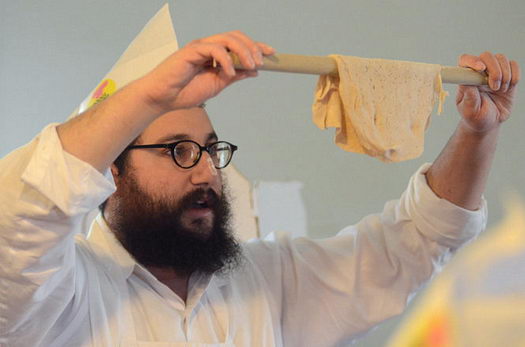
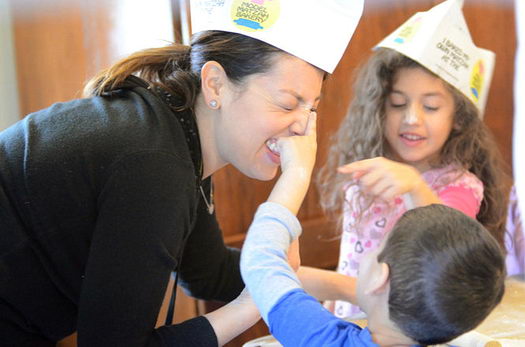
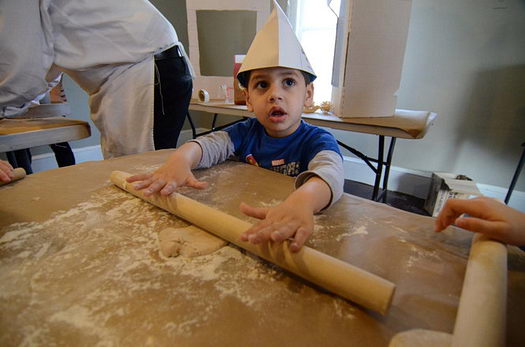



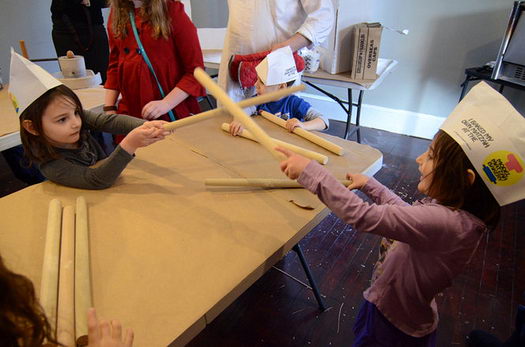

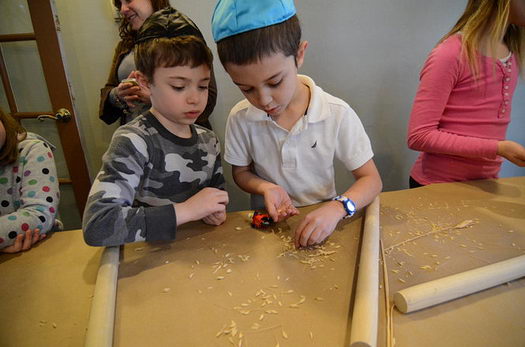
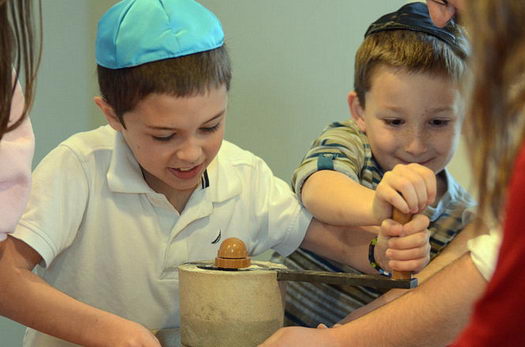

















Anonymous
mendy zeschkowski emouna zeschkowski lea zeschkowski
GO AVI AND MINA!
YOU GUYS ARE AWESOME! KEEP UP THE GREAT WORK, I HAVE NEVER SEEN SUCH HARD WORKING SHLUCHIM!!